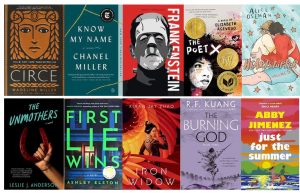Spring is here already. The grass is green, the sun glows warm, and we are all – faculty and students – waiting for finals to be over. As these beautiful days melt into cold nights in front of textbooks and laptops, I find it inescapable to question why burying myself in schoolwork matters.
I am not criticizing Concordia, nor am I calling into question the value of a college degree. Rather, I question the value of the four odd years separating matriculation from graduation. I am through nearly three years, and graduation seems just as distant as it did when I was first stepping foot on campus. Why should I give my final essays on Kant, behavioral economics, and political economy (and my final column, for that matter) my full attention if they won’t matter in a few weeks’ time?
Academics would answer that they will matter. Knowledge of political economy can help one ground contemporary debates in their philosophical origins. Behavioral economics is rife with fascinating experiments into human behavior. Most importantly, a familiarity with the Critique of Pure Reason can help us school any overzealous Cartesians we run across. And, lest we forget, all of the above teach “critical thinking” – whatever that phrase means this week. I have heard answers in this vein for years, and each year they ring hollower. Fortunately, research has substantiated these claims.
Put simply, how we spend our college years can make us happier people after it. A Gallup-Purdue University study has quantified the value of our college activities. “The study found that the type of schools these college graduates attended…” write Julie Ray and Stephanie Kafka, “…hardly matters at all to their workplace engagement and current well-being.” The study identifies the so-called Big Six experiences related to improved outcomes later in life:
- Having a professor who makes you interested about learning
- Having professors who you feel care about you
- Having a mentor who encourages you to pursue your own goals
- Completing a project that took at least a semester’s length of time
- An internship or job related to classroom learning
- Being “extremely active” with extracurricular activities
Of course, these Big Six raise their share of questions: why not the Big Five or Big Seven? What constitutes “extreme” activity? Et cetera ad nauseam. As one may expect, other research contests these findings.
Rather than the importance of activities, professors Gregory Wolniak and Mark E. Engberg identify students’ fields of studies as the single biggest determinant of future attitudes. “While business majors enjoy comparable earnings to STEM majors, the former reported significantly lower levels of learning, satisfaction, and challenge on the job; in contrast, education majors earn substantially less than STEM majors but are more satisfied and committed to their jobs.” The research on how college activities affect students later in life is inconclusive, and equally important, suffers from a methodological flaw: studies can only suggest relationships between activities and outcomes, not identify causation. Recognizing these shortcomings, we can still learn how to move forward.
As a college student, I find it damn hard to plan for tomorrow, let alone to plan for my happiness twenty years from now. That’s why these studies are so valuable to current undergraduates: we can learn where to focus our time now for the possibility of future happiness. This is a new and exciting area of research (Wolniak’s and Engberg’s paper is not yet published) that can further guide Concordia and other colleges. We can conclude how the Big Six relate to happiness for all college students, while Wolniak and Engberg’s research suggests these effects depend largely on field of study. (Fortunately my loyal readers already know not all college majors are equal.) Concordia is well-poised to capitalize on these findings.
It’s an exciting time to be a Cobber. Remember those summer emails about integrative learning? It’s still going on. Concordia’s renewed focus on its fantastic history of integrative learning is already changing campus. These improvements will help any student pursue the Big Six or whatever high impact experiences they are looking for. I look forward to letting these findings guide my final year at Concordia.





Be First to Comment